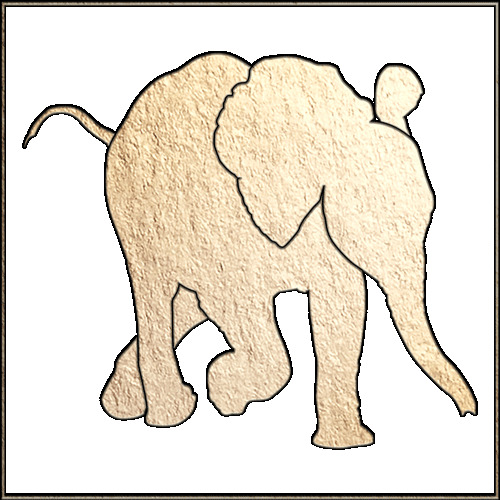Warby’s shop
Murrell Warby the 3rd, son of John and Katherine, grandson of the original Murrell, became a shopkeeper, running a grocery and draperystore in Three Holes. It is likely he was apprenticed at the shop and later took it over. In April 1859 he married Elizabeth Sims, who was the daughter of Henry Sismore Sims, a grocer.
It is possible that Henry Sims ran the grocery store in Three Holes, and Murrell took it over on his marriage. In the census of 1861 he, his wife and one year old son John Henry were the sole occupants of the property.
Also there had been a public footpath which went behind the pub, either to the Pingle or Nordelph.
The Cawthorn family
Ann McClean now living in Wales, notes that her great, great Grandfather’s elder brother, William Walton Cawthorn, sold drapery, groceries and was Postmaster at Three Holes in 1900 (see Kelly’s Directory). William married Eliza Jane Means and one of their daughters, Rebecca, married Thomas Forth.
The Cawthorns bought the building for the Methodist church. The family moved to Christchurch (where Ann grew up) via Emneth and Upwell. They have been in the same area for over 300 years. For more information about the Cawthorns and the Forths, see Ann McClean’s website.
The Warby family
Albert Warby, a member of the original Warby family, took over the shop and his son Cyril H. Warby was born there in 1911. Albert Warby began business at Upwell in a small lean-to thatched shop. He apparently went from door to door with goods in a basket over his arm. His business progressed so that at one time he had shops at Upwell, Lakesend, Welney and Three Holes. By 1937, Three Holes Bridge had a Post and Telephone Office, and Albert Warby was the draper, the grocer and the postmaster.
Cyril Warby took over the business when he came out of the Forces after the war. He married Lorna in 1947 and they ran the business together until 1967 when they retired.
Len Warby, aged 90 in 2006, told Rita Cuss that his uncle told him that the village well was behind the Bridge Inn before the Middle Level was cut. He remembers when Artie Ward kept the pub, one of the buildings at the back caved in and it was thought that was where the well had been.
Three Holes Bakery
Early bakers in the vlage included Thomas Mayhew in 1839, John Hurry in 1845 and Thomas Storry who had the copyhold house, bake office and garden in Bakers Drove, according to the Kelly’s directories. He was there until 1876. Mrs Jane Oliver was a baker in Three Holes baker. Rita Cuss’ great grandfather, Thomas Bowles was the Three Holes baker and butcher from 1892 to 1905. His daughter Hannah Ann Bowles was born about 1880 and lived in the bakery. Rita Cuss remembers family stories:
They called Thomas “Sailor Bowles” and legend has it that he “wore a cut in the road” between the Bakery and the Red Hart, as he liked his drink. His daughter Hannah went to school at The Parish Rooms at Upwell (which are now gone) and Thomas had to pay 2p per week for her education. Along with other children, she walked to school. Hannah often had to help her father with pig killing, and went with him in a horse drawn cart delivering bread as far away as Euximoor and Christchurch.
Rita Cuss describes family memories
Hannah met Harry Crampton when he came from Sheffield for the fishing. She went back to Sheffield with him and went into service there before they got married.
They had four children Nellie, Harry Dickerson, Ernest (who died in childhood) and Alfred. The family returned to live in Upwell when Harry Dickerson was 18 months old. He married Beatrice Watson from Nordelph, and their first home was the cottage next to the bridge where Rita was born. This cottage was later the home of Mr. & Mrs. Sid Hempson and family.
They moved to New Road, Upwell, where daughters Heather and Ann were born.

Phillip Large took over in 1912 and was still there in 1937, working with his son, Eric. Eric and his wife Nellie took over from the late 1940s onwards.
In 1965, it was the only baker within a two-mile radius baking fresh bread. They baked 2,500 to 3,500 loaves each week and roundsmen delivered them. The cost? 1s 3d a loaf – about 8p.
Eric and Nellie then changed to the post office.
Alec and Edna took over, then the Job’s, and then it became a private house belonging to the Ridgeways. The post office moved to the village shop.

